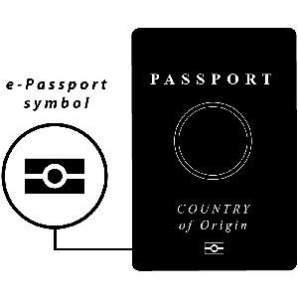Secretary of Homeland Security Kirstjen M. Nielsen announced on December 15, 2017, that the Department of Homeland Security (DHS), in consultation with the Department of State and other federal agencies, is implementing new security requirements for the Visa Waiver Program (VWP). VWP allows citizens of 38 countries to travel to the United States for business or tourism for stays of up to 90 days without a visa. Each year, the United States allows more than 20 million visitors to travel to the United States under the VWP.
The new measures include requiring VWP countries “to use counterterrorism information to better screen travelers,” assessing VWP countries “to ensure they implement safeguards against the aviation sector,” and requiring certain VWP countries “to initiate public information campaigns to reduce overstays.”
Specifically, DHS is introducing the following measures applicable to all countries in the VWP:
- Requiring VWP countries to fully implement existing information-sharing arrangements by systematically screening travelers crossing their borders against U.S. counterterrorism information;
- Assessing VWP countries on the effectiveness of safeguards against insider threats in the aviation security environment; and
- Requiring VWP countries having a two percent or greater rate of business or tourism nonimmigrant visitors overstaying the terms of their admission into the United States to initiate a public information campaign to reduce overstay violations by educating their nationals on the conditions for admission into the United States.
DHS reportedly said that Hungary, Greece, Portugal, and San Marino will launch public campaigns to inform their citizens because two percent of travelers from those countries overstayed their terms of admission.
DHS is also asking Congress to codify existing VWP requirements to bolster efforts in the following areas:
- Reporting of foreign terrorist fighter information to multilateral organizations, such as INTERPOL and EUROPOL;
- Systematically collecting and analyzing passenger travel data (Advance Passenger Information/Passenger Name Records); and
- Concluding arrangements to permit U.S. Federal Air Marshals to operate on board U.S. air carriers for last point of departure flights to the United States.
As part of its regular cooperation with VWP countries, DHS said it “will develop targeted engagement plans to support implementation of these measures.” DHS has assessed that these security enhancements will not hinder lawful trade and travel. Qualified nationals will continue to be able to travel to the United States under the VWP, DHS noted.
DHS also said that travelers in the following categories are no longer eligible to travel or be admitted to the United States under the VWP:
- Nationals of VWP countries who have traveled to or been present in Iran, Iraq, Sudan, Syria, Libya, Somalia, or Yemen on or after March 1, 2011 (with limited exceptions for travel for diplomatic or military purposes in the service of a VWP country); and
- Nationals of VWP countries who are also nationals of Iran, Iraq, Sudan, or Syria.

In addition, travelers must have an e-passport to use the VWP. An e-passport is an enhanced secure passport with an embedded electronic chip. An e-passport is readily identified by a unique international symbol on the cover.
Related Links:
- DHS Secretary Nielsen’s statement.
- Additional information on the VWP, including a list of participating countries.